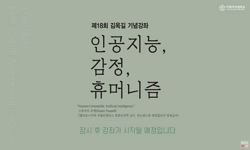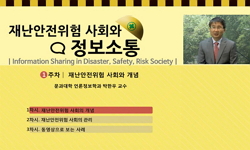본 연구의 목적은 21세기 위험 사회의 주요 동인인 과학기술의 발달에 따른 디지털 사회로의 전환에 대해 고찰하고, 이를 바탕으로 21세기 시민의 자질을 도출하는 데 있다. 디지털 사회와 관...
http://chineseinput.net/에서 pinyin(병음)방식으로 중국어를 변환할 수 있습니다.
변환된 중국어를 복사하여 사용하시면 됩니다.
- 中文 을 입력하시려면 zhongwen을 입력하시고 space를누르시면됩니다.
- 北京 을 입력하시려면 beijing을 입력하시고 space를 누르시면 됩니다.
https://www.riss.kr/link?id=A108486897
- 저자
- 발행기관
- 학술지명
- 권호사항
-
발행연도
2023
-
작성언어
Korean
-
주제어
디지털 시민성 ; 위험 사회 ; 기술적 실업 ; 인공지능 ; 편향 ; digital citizenship ; risk society ; technological unemployment ; artificial intelligence ; bias
-
KDC
337
-
등재정보
KCI등재
-
자료형태
학술저널
-
수록면
121-139(19쪽)
- DOI식별코드
- 제공처
- 소장기관
-
0
상세조회 -
0
다운로드
부가정보
국문 초록 (Abstract)
첫째, 기술 발전은 기술적 실업(technological unemployment)을 야기 하지만, 이는 전통적인 도구적 노동에서 시민을 해방시키고, 노동을 자아실현으로 인식하는 목적적 노동으로의 패러다임 전환을 촉발시킬 수도 있다. 따라서 21세기 디지털 사회의 시민은 자신의 정체성을 확인하고 자아실현 할 수 있는 역량이 필요하다.
둘째, 디지털 사회에서 인공지능의 생각하기는 인간의 그것과는 구별된다. 자의식에 기반한 인간의 마음 형성은 현존하는 인공지능의 계산하기와 다르다. 따라서 시민은 인공지능을 공포와 견제의 대상이라기보다는 창의적 문제 해결의 도구로 활용해야한다.
마지막으로, 디지털 사회에서 시민의 편향은 필연적이다. 따라서 기존의 편향에 대한 성찰적 사고를 통해 주어진 현상을 맥락적으로 해석하기 위한 조건으로서 유연한 편향성이 필요하다. 유연한 편향성은 디지털 사회에서 네트워크의 게토(ghetto)화와 인공지능 알고리즘의 맹목적 추종을 방지할 수 있을 것이다.
본 연구의 목적은 21세기 위험 사회의 주요 동인인 과학기술의 발달에 따른 디지털 사회로의 전환에 대해 고찰하고, 이를 바탕으로 21세기 시민의 자질을 도출하는 데 있다. 디지털 사회와 관련된 기술적 실업, 인공지능의 진화, 시민의 편향에 대한 논의 결과를 바탕으로 다음과 같은 시민의 자질을 도출할 수 있다.
첫째, 기술 발전은 기술적 실업(technological unemployment)을 야기 하지만, 이는 전통적인 도구적 노동에서 시민을 해방시키고, 노동을 자아실현으로 인식하는 목적적 노동으로의 패러다임 전환을 촉발시킬 수도 있다. 따라서 21세기 디지털 사회의 시민은 자신의 정체성을 확인하고 자아실현 할 수 있는 역량이 필요하다.
둘째, 디지털 사회에서 인공지능의 생각하기는 인간의 그것과는 구별된다. 자의식에 기반한 인간의 마음 형성은 현존하는 인공지능의 계산하기와 다르다. 따라서 시민은 인공지능을 공포와 견제의 대상이라기보다는 창의적 문제 해결의 도구로 활용해야한다.
마지막으로, 디지털 사회에서 시민의 편향은 필연적이다. 따라서 기존의 편향에 대한 성찰적 사고를 통해 주어진 현상을 맥락적으로 해석하기 위한 조건으로서 유연한 편향성이 필요하다. 유연한 편향성은 디지털 사회에서 네트워크의 게토(ghetto)화와 인공지능 알고리즘의 맹목적 추종을 방지할 수 있을 것이다.
다국어 초록 (Multilingual Abstract)
First, technological development causes technological unemployment, in which technology replaces citizens jobs, but it liberates citizens from traditional instrumental labor and triggers a paradigm shift to purposeful labor, which recognizes labor as self-realization. You can do it. Therefore, citizens of the 21st century digital society need to confirm their identity and develop the capacity to realize themselves.
Second, artificial intelligence is evolving in the digital society, but the thinking of artificial intelligence is different from that of humans. The formation of the human mind based on self-consciousness is different from the calculation of existing artificial intelligence. Therefore, rather than interpreting artificial intelligence as an object of check and fear, citizens need to cultivate digital literacy that can creatively utilize it for problem solving.
Finally, citizen bias is inevitable in a digital society. Therefore, it is necessary to cultivate flexible bias as a condition for contextually interpreting a given phenomenon through introspective thinking on the existing bias. Flexible bias, a mindset that the interpretation of the object you see may be biased, will prevent the ghettoization of networks and the blind following of artificial intelligence algorithms in a digital society.
The purpose of this study is to examine the development of science and technology and the transition to a digital society, which are the main drivers of the 21st century risk society, and to derive the qualities of a 21st century citizen. The results ...
The purpose of this study is to examine the development of science and technology and the transition to a digital society, which are the main drivers of the 21st century risk society, and to derive the qualities of a 21st century citizen. The results of this study are as follows.
First, technological development causes technological unemployment, in which technology replaces citizens jobs, but it liberates citizens from traditional instrumental labor and triggers a paradigm shift to purposeful labor, which recognizes labor as self-realization. You can do it. Therefore, citizens of the 21st century digital society need to confirm their identity and develop the capacity to realize themselves.
Second, artificial intelligence is evolving in the digital society, but the thinking of artificial intelligence is different from that of humans. The formation of the human mind based on self-consciousness is different from the calculation of existing artificial intelligence. Therefore, rather than interpreting artificial intelligence as an object of check and fear, citizens need to cultivate digital literacy that can creatively utilize it for problem solving.
Finally, citizen bias is inevitable in a digital society. Therefore, it is necessary to cultivate flexible bias as a condition for contextually interpreting a given phenomenon through introspective thinking on the existing bias. Flexible bias, a mindset that the interpretation of the object you see may be biased, will prevent the ghettoization of networks and the blind following of artificial intelligence algorithms in a digital society.
목차 (Table of Contents)
- 국문요약
- Ⅰ. 디지털 시대의 사회 문제
- Ⅱ. 무엇이 문제인가?
- Ⅲ. 21세기 위험 사회의 시민적 자질
- Ⅳ. 결론
- 국문요약
- Ⅰ. 디지털 시대의 사회 문제
- Ⅱ. 무엇이 문제인가?
- Ⅲ. 21세기 위험 사회의 시민적 자질
- Ⅳ. 결론
- 참고문헌
동일학술지(권/호) 다른 논문
-
- 숙명여자대학교 아시아여성연구원
- 권정현(Junghyun Kwon)
- 2023
- KCI등재
-
젠더 기반 온라인 폭력의 개념화와 규제 패러다임의 전환
- 숙명여자대학교 아시아여성연구원
- 김수아(Sooah Kim)
- 2023
- KCI등재
-
‘청소년과 미디어’ 중학교 교과서의 디지털 시민역량 요소에 대한 탐색적 연구
- 숙명여자대학교 아시아여성연구원
- 김지은(Ji-Eun Kim)
- 2023
- KCI등재
-
메타버스의 기술적 특징과 디지털 시민교육 : 가상-물리 세계의 연결성을 중심으로
- 숙명여자대학교 아시아여성연구원
- 도승연(Seung-youn Dho)
- 2023
- KCI등재
분석정보
연관 공개강의(KOCW)
-

[제18회 김옥길기념강좌] 인공지능, 감정, 휴머니즘(Human-Compatible Artificial Intelligence’)’
이화여자대학교 스튜어드 러셀 -

누구나 할 수 있는 데이터 분석과 인공지능[Data Analysis and Artificial Intelligence for Everyone]
K-MOOC 인하공업전문대학 이세훈 -

누구나 할 수 있는 데이터 분석과 인공지능[Data Analysis and Artificial Intelligence for Everyone]
K-MOOC 인하공업전문대학 이세훈 -

재난안전 위험사회와 정보소통
영남대학교 박한우 -

인공지능
한양대학교 박태준





 DBpia
DBpia


